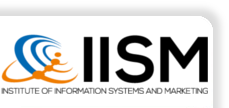| Prerequisites | The attendance of coursesCustomer Relationship Management[2540508] andAnalyitical CRM[2540522] is advised. |
| Bibliography | Jill Dyché. The CRM Handbook: A Business Guide to Customer Relationship Management. Addison-Wesley, Boston, 2 edition, 2002. Ronald S. Swift. Accelerating Customer Relationships: Using CRM and RelationshipTechnologies. Prentice Hall, Upper Saddle River, 2001. Elective literature: Alex Berson, Kurt Thearling, and Stephen J. Smith. Building Data Mining Applications for CRM. Mc Graw-Hill, New York, 2000. Stanley A. Brown. Customer Relationship Management: A Strategic Imperative in theWorld of E-Business. John Wiley, Toronto, 2000. Dimitris N. Chorafas. Integrating ERP, CRM, Supply Chain Management, and SmartMaterials. Auerbach Publications, Boca Raton, Florida, 2001. Keith Dawson. Call Center Handbook: The Complete Guide to Starting, Running, and Improving Your Call Center. CMP Books, Gilroy, CA, 4 edition, 2001. Andreas Eggert and Georg Fassot. eCRM – Electronic Customer Relationship Management: Anbieter von CRM-Software im Vergleich. Schäffer-Poeschel, Stuttgart, 2001. Seth Godin. Permission Marketing. Kunden wollen wählen können. FinanzBuch Verlag, München, 1999. Paul Greenberg. CRM at the Speed of Light: Capturing and Keeping Customers in Internet Real Time. Osborne/McGraw-Hill, 3rd ed. edition, Aug 2004. Philip Kotler. Marketing Management: Millennium Edition. Prentice Hall, Upper Saddle River, 10 edition, 2000. Don Peppers and Martha Rogers. The One To One Future. Currency Doubleday, New York, 1997. Duane E. Sharp. Customer Relationship Management Systems Handbook. Auerbach, 2002. Len Silverston. The Data Model Resource Book: A Library of Universal Data Models for All Entreprises, volume 1. John Wiley & Sons, 2001. Toby J. Teorey. Database Modeling and Design. Morgan Kaufmann, San Francisco, 3 edition, 1999. Chris Todman. Designing a Data Warehouse : Supporting Customer Relationship Management. Prentice Hall, Upper Saddle River, 1 edition, 2001. |
| Content of teaching | The Student should be able to understand and implement methods and applications within the operative CRM. This includes, but is not limited to the analysis of business processes, as a basis for improvements in CRM, and applications like call centers. |
| Workload | The total workload for this course is approximately 135 hours (4.5 credits): Time of attendance
Self-study
Sum: 135h 00m |
| Aim | The Student
|
| Exam description | Assessment consists of a written exam of 1 hour length following §4 (2), 1 of the examination regulation and by submitting written papers as part of the exercise following §4 (2), 3 of the examination regulation. The course is considered successfully taken, if at least 50 out of 100 points are acquired in the written exam. In this case, all additional points (up to 10) from excersise work will be added. Grade: Minimum points
The grade consists of approximately 91% of exam points and 9% of exercise points. |
Operative CRM
| type: | Vorlesung (V) | links: | weitere Informationen |
|---|---|---|---|
| semester: | WS 17/18 | ||
| time: | 2017-10-17 15:45 - 17:15 wöchentlich 10.11 Raum 213 ( Ersatzraum für Raum 103.2 Geb. 20.14 ) 10.11 Verwaltungsgebäude, Hauptbau 2017-10-24 15:45 - 17:15 wöchentlich 10.11 Raum 213 ( Ersatzraum für Raum 103.2 Geb. 20.14 ) 10.11 Verwaltungsgebäude, Hauptbau 2017-11-07 15:45 - 17:15 wöchentlich 10.11 Raum 213 ( Ersatzraum für Raum 103.2 Geb. 20.14 ) 10.11 Verwaltungsgebäude, Hauptbau 2017-11-14 15:45 - 17:15 wöchentlich 10.11 Raum 213 ( Ersatzraum für Raum 103.2 Geb. 20.14 ) 10.11 Verwaltungsgebäude, Hauptbau 2017-11-21 15:45 - 17:15 wöchentlich 10.11 Raum 213 ( Ersatzraum für Raum 103.2 Geb. 20.14 ) 10.11 Verwaltungsgebäude, Hauptbau 2017-11-28 15:45 - 17:15 wöchentlich 10.11 Raum 213 ( Ersatzraum für Raum 103.2 Geb. 20.14 ) 10.11 Verwaltungsgebäude, Hauptbau 2017-12-05 15:45 - 17:15 wöchentlich 10.11 Raum 213 ( Ersatzraum für Raum 103.2 Geb. 20.14 ) 10.11 Verwaltungsgebäude, Hauptbau 2017-12-12 15:45 - 17:15 wöchentlich 10.11 Raum 213 ( Ersatzraum für Raum 103.2 Geb. 20.14 ) 10.11 Verwaltungsgebäude, Hauptbau 2017-12-19 15:45 - 17:15 wöchentlich 10.11 Raum 213 ( Ersatzraum für Raum 103.2 Geb. 20.14 ) 10.11 Verwaltungsgebäude, Hauptbau 2018-01-09 15:45 - 17:15 wöchentlich 10.11 Raum 213 ( Ersatzraum für Raum 103.2 Geb. 20.14 ) 10.11 Verwaltungsgebäude, Hauptbau 2018-01-16 15:45 - 17:15 wöchentlich 10.11 Raum 213 ( Ersatzraum für Raum 103.2 Geb. 20.14 ) 10.11 Verwaltungsgebäude, Hauptbau 2018-01-23 15:45 - 17:15 wöchentlich 10.11 Raum 213 ( Ersatzraum für Raum 103.2 Geb. 20.14 ) 10.11 Verwaltungsgebäude, Hauptbau 2018-01-30 15:45 - 17:15 wöchentlich 10.11 Raum 213 ( Ersatzraum für Raum 103.2 Geb. 20.14 ) 10.11 Verwaltungsgebäude, Hauptbau 2018-02-06 15:45 - 17:15 wöchentlich 10.11 Raum 213 ( Ersatzraum für Raum 103.2 Geb. 20.14 ) 10.11 Verwaltungsgebäude, Hauptbau |
||
| lecturer: | Prof. Dr. Andreas Geyer-Schulz | ||
| sws: | 2 | ||
| lv-no.: | <a target="lvn" href="https://campus.studium.kit.edu/events/g2VKqMx_TiqOE4XCWAjb_g">2540522</a> | ||


